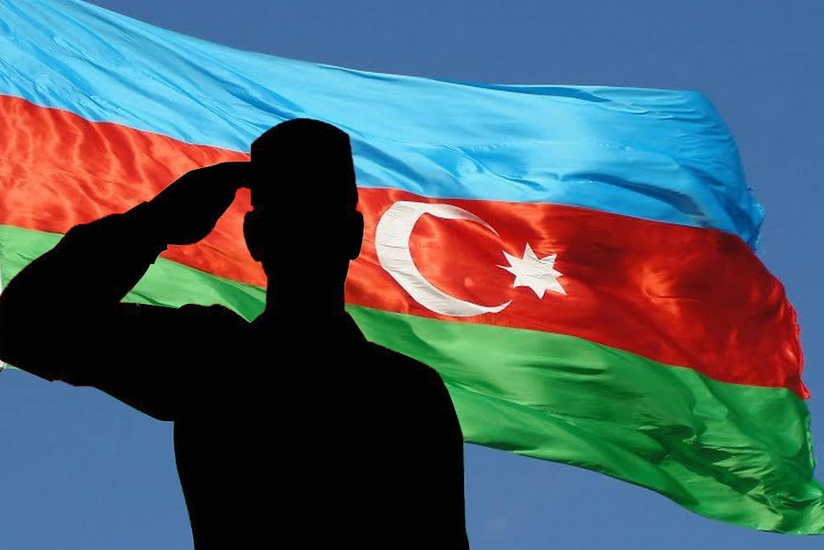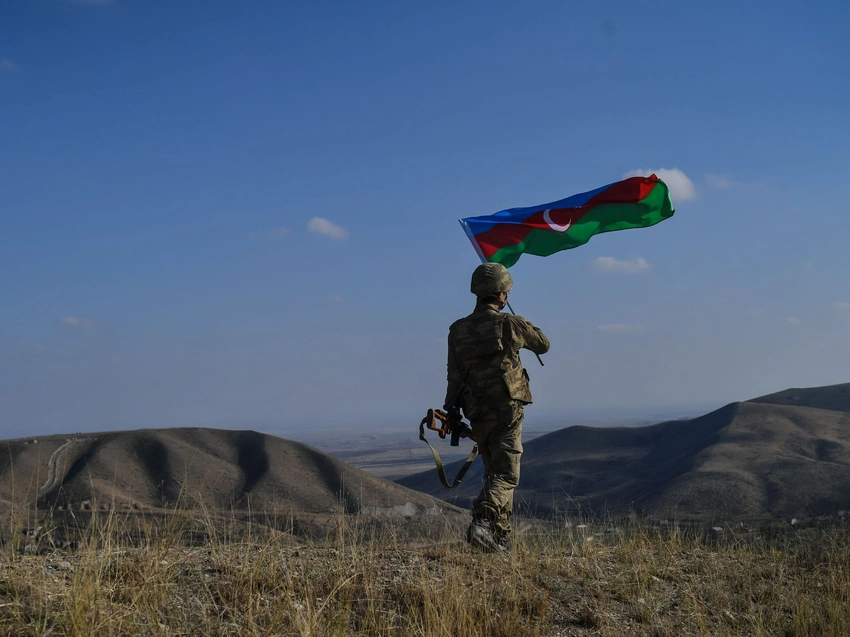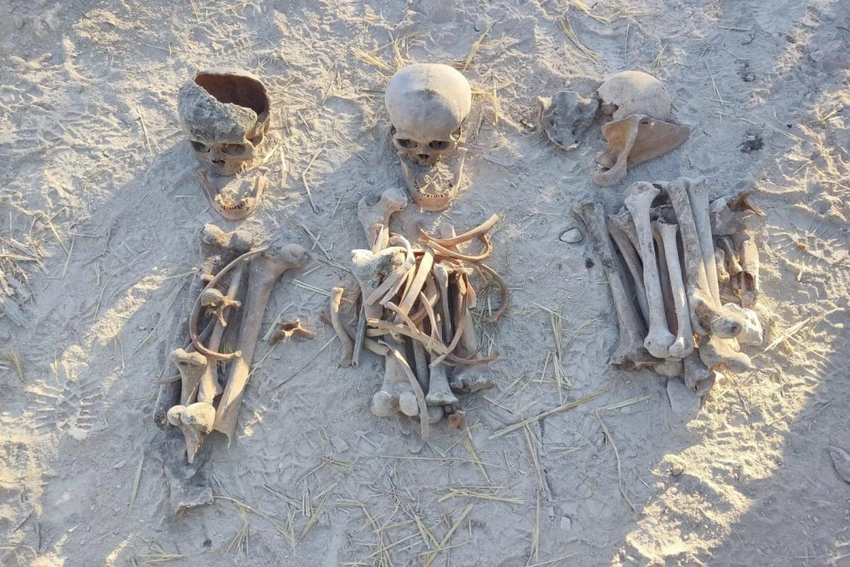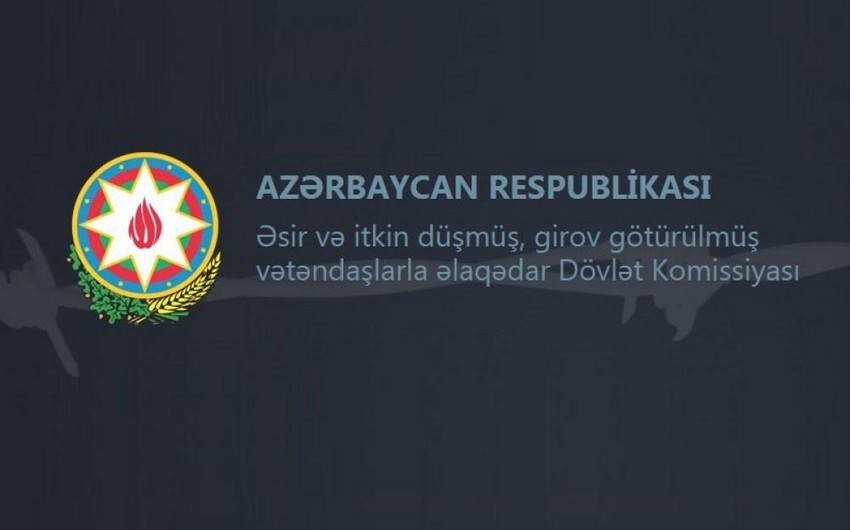Armenia rejects providing info on burial sites of missing persons of 1st Karabakh War
- 29 August, 2022
- 11:31

August 30 is the International Day of the Victims of Enforced Disappearances, which was proclaimed by the UN General Assembly on December 21, 2010, Report informs.
The State Commission on Prisoners of War, Hostages and Missing Persons of the Republic of Azerbaijan was established in 1993 in order to eliminate the consequences of the humanitarian crisis caused by Armenia's military aggression against Azerbaijan. Since its establishment, the State Commission has closely been in cooperation with the International Committee of the Red Cross (ICRC) under international humanitarian law norms which the Republic of Azerbaijan has joined.
As a result of Armenia's military aggression against Azerbaijan, 3,890 Azerbaijani citizens were registered as missing persons in the State Commission during the first Karabakh war; 3,171 of them were military, and 719 were civilians. Among the civilians, 71 were minors, 267 were women, and 326 were elderly.
Out of the total number of missing people, 872 people, including 29 children, 98 women, and 112 elderly, were taken hostage or remained in the occupied territories. The prisoners and hostages who were released later confirmed that they had seen those people alive.
During the conflict, Armenia hid information about these persons from international organizations and avoided providing reports on their further fate.
Representatives of the ICRC met with 54 of the missing persons of the First Karabakh War in Armenia while they were still alive. Later, the bodies of 17 of them were handed over after their death. Though the deaths of 33 of them were confirmed, their bodies were not returned. And it was not possible to get any information about four of the missing persons at all.
During the first Karabakh war, 1,480 Azerbaijanis were released from Armenian captivity.

According to the Framework Agreement on the Collection and Centralized Management of Ante-Mortem Data on Missing Persons signed between the Representation of the ICRC in Azerbaijan and the State Commission in April 2008, the biological (DNA) samples have been collected from the families of missing persons since 2014. During the past period, 10,309 biological samples were collected from family members of 3,315 victims. The work of extracting DNA profiles from the collected biological samples started in November 2021. For this purpose, profiles have been created for each of the 1,024 biological samples so far.
The main reason preventing the determination of the fate of the missing persons during the conflict was the fact that Armenia occupied the territories of Azerbaijan until November 10, 2020. In the current conditions, the main points that prevent the determination of the fate of the missing are that Armenia does not provide information about the burial places and the presence of numerous mines in the liberated territories.
Even though it has been repeatedly raised and discussed at high-level meetings and on various platforms, the Armenian side does not provide information on the grave sites of the missing persons in the First Karabakh War.
In the new situation that arose after the victory in the Second Karabakh War, a number of measures were taken to clarify the fate of the persons who went missing in the First Karabakh War.
From February 2021 to April 2022, during the exhumation carried out in mass graves identified in Shusha district, Dashalti village, Khojavand district, Edilli village, Farrukh and Dashbashi villages of Khojaly district, as well as in Aghdam and Shusha, Goygol, Tartar, Fuzuli, Kalbajar, and Zangilan districts, which were liberated from occupation, the remains of 82 people were found during the construction work.

Remains of 183 unknown martyrs who died during the First Karabakh War were exhumed from 191 unknown graves in 21 cemeteries in 13 cities and districts of Azerbaijan.
In addition to long-term cooperation with the ICRC, the State Commission hopes that it will open up new opportunities for solving the tasks ahead. In April 2022, a Protocol on cooperation was signed with the representatives of the International Commission on Missing Persons.
At present, the search for 6 Azerbaijani servicemen who went missing in the Second Karabakh War continues.
During its military aggression against Azerbaijan, Armenia grossly violated many international legal norms, including the requirements of international humanitarian law. Contrary to the rules of war, the civilian population was not spared. Instead, they were taken hostage and, in many cases, killed. After unimaginable tortures were inflicted on captives and hostages, they were killed and their corpses were not even presented to the Azerbaijani side to eliminate the traces of torture;
The barbaric behavior of the Armenian side regarding hostages can be classified as follows:
- Killing of Azerbaijani hostages on the graves of Armenian soldiers and on the commemoration days of the "Armenian genocide";
- Turning captives and hostages into anti-Turkish and anti-Azerbaijani ideological propaganda tools, handing them over to the civilian population and humiliating them in the squares to increase the hatred, putting them in an insulting position and walking them around residential areas, forcing them to appear on various TV channels and give interviews against their country;
- The use of prisoners and hostages as slaves, their use in the demolition and looting of historical monuments, cemeteries, houses, and administrative buildings in occupied settlements, in other words, their use in acts of vandalism, and their employment in harmful production areas;
- Terrible torture and detention in inhumane conditions, regardless of age and gender;
- Detention of prisoners and hostages in prisons together with persons of Armenian origin who have committed grave crimes in Armenia;
- Involvement in illegal interrogations accompanied by terrible torture to obtain various information contrary to the Geneva Conventions;
- Turning captives and hostages into various medical and other experimental objects, irradiating their bodies and injecting substances of unknown composition;
In most cases, the following missing Azerbaijani citizens were violated:
- Not to be tortured;
- The right to be recognized as an individual before the law;
- The right to freedom and immunity;
- Right to life.
The Armenian side does not cooperate in finding the missing citizens of Azerbaijan. It is clear that the Armenian side, which treats captives and hostages in violation of international law and brutally kills them in most cases, refuses to cooperate in this direction to prevent the revelation of its criminal acts.
During the occupation of the Kalbajar district in April 1993, one of such war crimes of Armenia against the people of Azerbaijan was exposed by the radio counter-intelligence service of the relevant state institutions of Azerbaijan. In the obtained material, an urgent order was issued from the headquarters radio station in the Basarkecher region of Armenia to the main radio station in the Kalbajar combat zone to all mobile radio stations in the district to immediately destroy and bury captured and hostage Azerbaijani citizens, including the elderly, women and children. The goal was to hide the traces of their crimes from the international delegation that came to the war zone at that time.
There are facts that relatives looking for their loved ones were deceived and taken hostage or killed.
- Azerbaijani citizen Asgar Isayev went missing near the Armenian border with Azerbaijan's Gazakh district on December 31, 1992. Then, his brother Jahangir Isayev and his sister's husband, Mammad Mammadov, went to the border of Armenia with Georgia on November 7, 1993, and talked with Armenians there. Ultimately, they were taken to Armenia under the pretense that they would meet Asgar Isayev and get him released. At present, the fate of all three of them is unknown.
- In February 1993, the relatives of Khagani Guliyev, a soldier of the Azerbaijani Army who went missing during the fighting for the Aghdara district of Azerbaijan, made contact with the Armenians living in Russia on their own initiative. The Armenians, who convinced them that Khagani Guliyev was alive, said that they would get him released in exchange for $25,000. Khagani Guliyev's brother Mahir Guliyev, who collected the funds with the help of his close relatives, went to Russia in the summer of 1996. However, the Armenians murdered Mahir Guliyev, took the money, and ran away.
There are also facts of forced cooperation of captives under threats and blackmail by the Armenian special services and inciting them to commit acts of terrorism and sabotage against the Republic of Azerbaijan.

Khojaly genocide is the most prominent example of Armenia's violation of the international humanitarian law norms. On February 26, 1992, the city of Khojaly was entirely besieged by Armenia and razed to the ground. Civilians were ambushed and killed; 613 people, including 63 children, 106 women, and 70 elderly, were brutally murdered. Eight families were completely destroyed, 25 children lost both parents, 130 children lost one of their parents. As many as 487 people, including 76 children, were injured.
Hundreds of Azerbaijanis were captured and taken hostage during the Khojaly genocide. The fate of 196 people, including 36 children and 65 women, remains unknown.
Every state is obliged to investigate the crimes and human rights violations mentioned, bring the perpetrators to justice, prevent the repetition of such violations, and ensure the relevant rights of the victims' families.
In this context, Azerbaijan implements all relevant measures per the requirements of international law and national legislation regarding missing citizens and their family members. The State Commission on Prisoners of War, Hostages, and Missing Persons operates in the country. The Commission carries out measures related to the repatriation of captives and hostages, the search for missing persons, coordinates the activities of relevant state bodies, and public and international organizations in this field, collects information about captives and missing citizens, and ensures the registration and systematization of this information.
Azerbaijan is working to attract global attention to the issue of missing persons and hostages at the international level. At the initiative of Azerbaijan, a resolution on "Missing persons" is adopted in the UN General Assembly every two years.
At the same time, Azerbaijan is the main initiator of the resolution "On the release of women and children taken hostage during armed conflicts" adopted by the UN Commission on the Status of Women.
